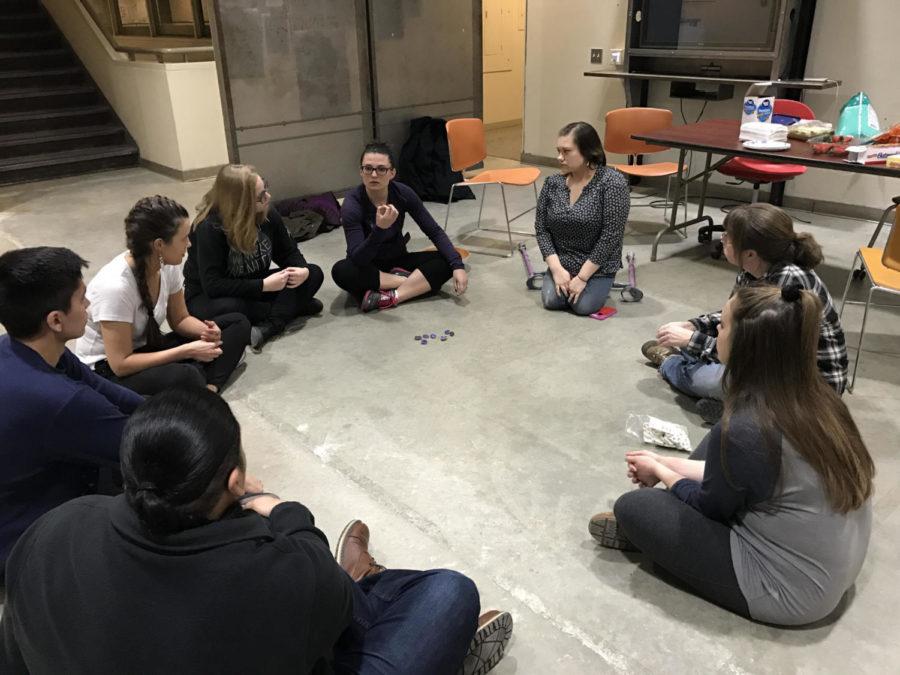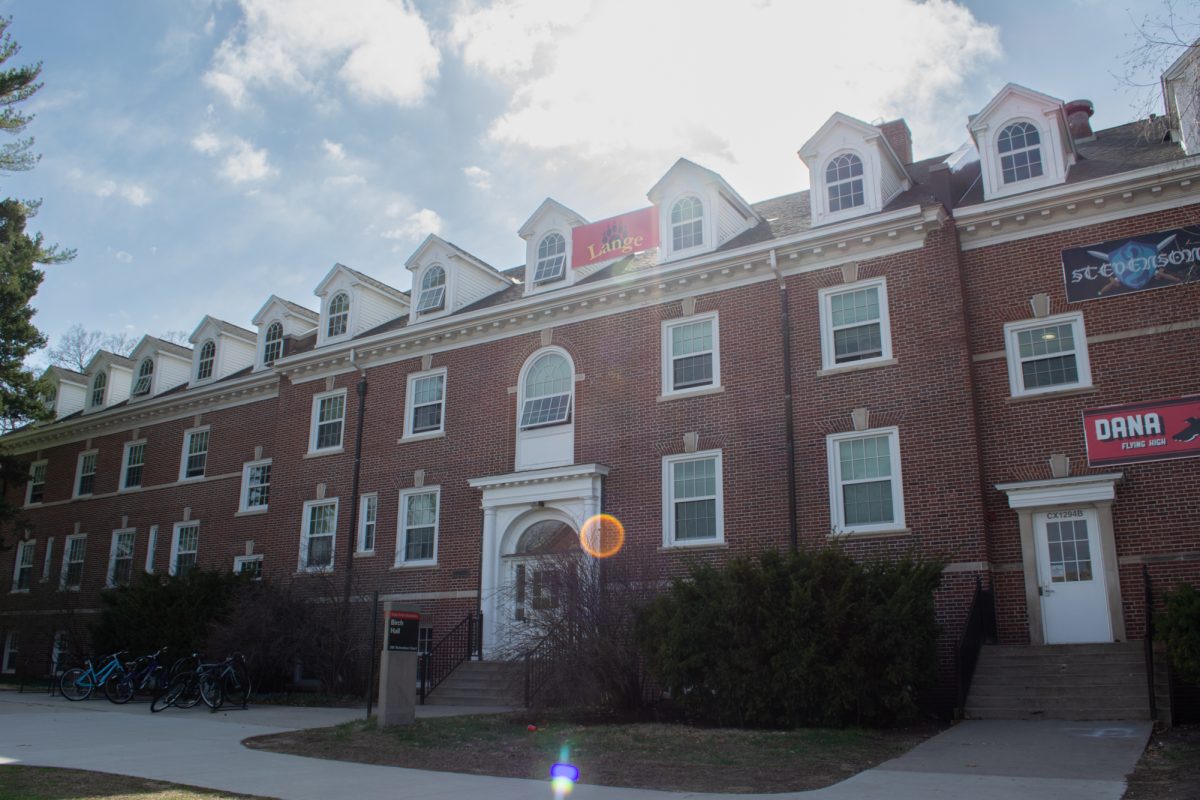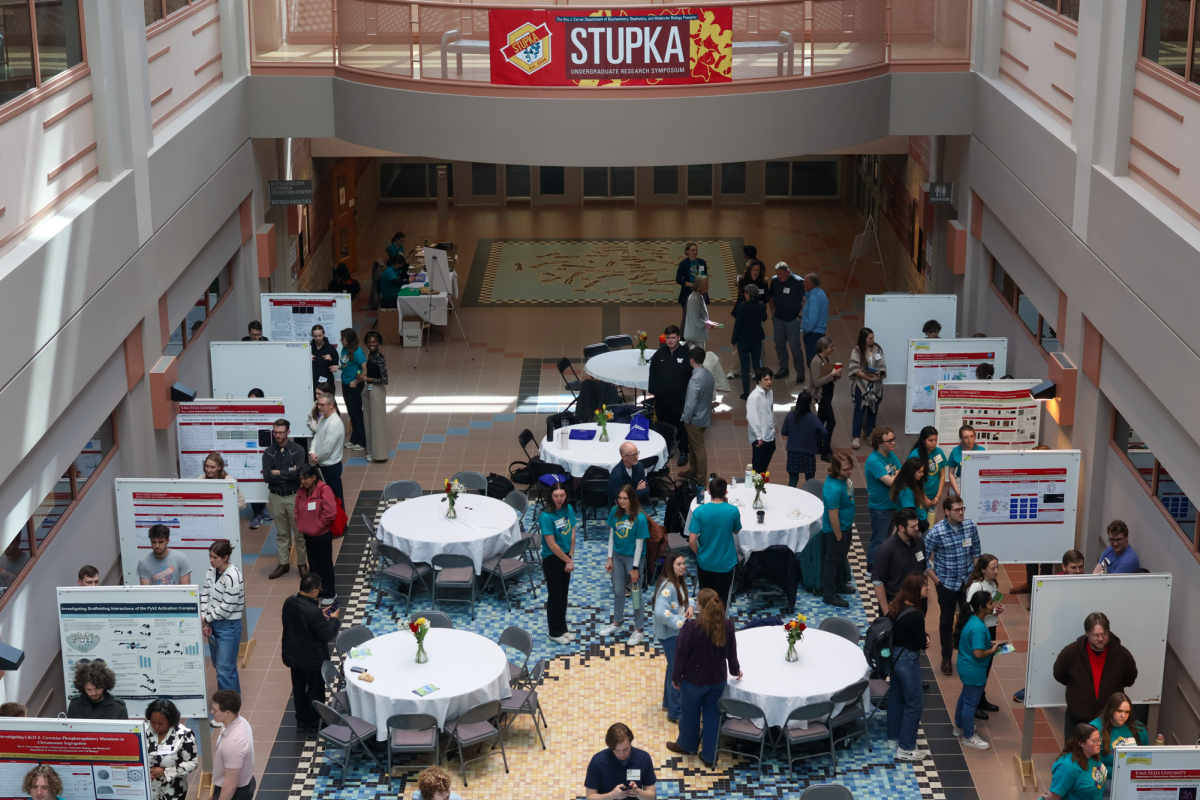Indigenous Peoples’ Day replaces Columbus Day throughout U.S.
Haley Strass teaches United Native American Student Association members how to count in Myaamia, an Algonquin language formerly spoken in the Midwest, on Feb. 15, 2017 in the Design Building.
October 13, 2019
Gov. Kim Reynolds issued a proclamation in 2018 declaring that the second Monday in October be acknowledged as “Indigenous Peoples’ Day” in Iowa.
Traditionally, the second Monday in October was celebrated as “Columbus Day” and still is in many jurisdictions, but the name of that holiday receives criticism for seeming to celebrate the role Christopher Columbus played in the genocide of the indigenous peoples of the Americas.
“This day recognizes the land now known as the State of Iowa, named in recognition of the Iowa Tribe, as well as the language used to identify many of our lakes, rivers, cities, counties, schools, buildings and considerably more, and reflects the inherent imprint of Indigenous Peoples,” said the Iowa Department of Human Rights in a statement at the time. “This land has been home to Indigenous People since time immemorial, and without whom, the building of this state would not have been possible.”
After the arrival of Columbus in the Americas, the population of indigenous peoples across the continents decreased by up to 90 percent.
A 2017 YouGov poll found 56 percent of Americans have a favorable view of Columbus and 60 percent said they thought observing a Columbus Day holiday was a “good idea.”
Columbus Day remains a federal holiday, and many federal buildings — including post offices — will be closed Monday.
“The State of Iowa joins a growing number of government entities across the country that have recognized the second Monday of October as Indigenous Peoples’ Day in order to promote appreciation, reconciliation, understanding, friendship and continued partnerships among all of its people and the Indigenous Peoples of this land,” the statement said.
Several jurisdictions will join Iowa in acknowledging Indigenous Peoples’ Day for the first time in 2019, including Louisiana, Maine, Michigan, New Mexico, Washington D.C. and Wisconsin. Washington D.C. will acknowledge Indigenous Peoples’ Day following a vote of the national capital’s city council Tuesday.
“Columbus Day was officially designated as a federal holiday in 1937 despite the fact that Columbus did not discover North America, despite the fact that millions of people were already living in North America upon his arrival in the Americas and despite the fact that Columbus never set foot on the shores of the current United States,” said David Grosso, Washington D.C. council member at-large, in a statement before the vote. “Columbus enslaved, colonized, mutilated and massacred thousands of Indigenous People in the Americas.”
Tomorrow I will put forth legislation that will force a vote of the full Council to finally do the right thing by ending the celebration of the misleading narrative of Christopher Columbus on the second Monday in October in honor of #IndigenousPeoplesDay https://t.co/xlvbeabRNs pic.twitter.com/j4Ugo9pyzD
— David Grosso (@cmdgrosso) October 7, 2019
Florida, Alaska, South Dakota, Nevada, Minnesota and Vermont had all previously established holidays to acknowledge indigenous peoples in their jurisdictions on what formerly was Columbus Day. A bill to establish an Indigenous Peoples’ Day in Montana failed to pass a Senate committee in that state on a party-line vote, with all Republicans voting against.







